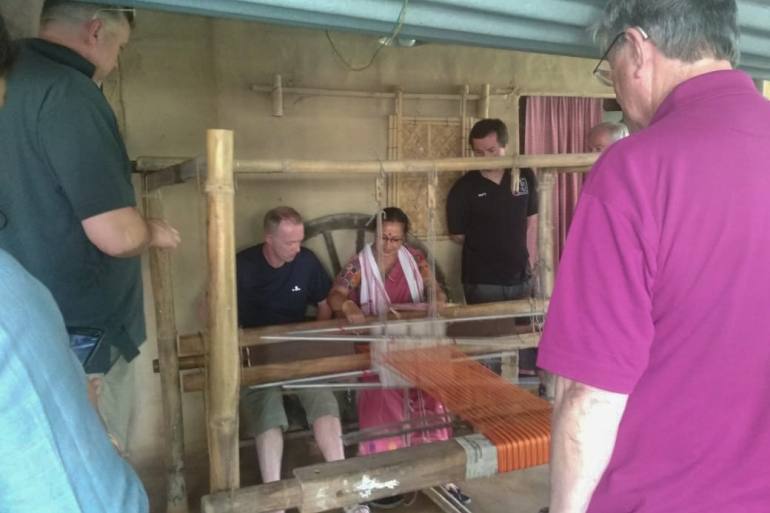It’s easy to revile things and complain that everything around is senseless, bigoted or trashy. But it’s frankly difficult to make sense of trash. And what if, you were the kinds who could actually weave some magic around trash, turning it into something of novel value?
Ever heard of such a tale where someone uses to great effect discarded objects and just pure trash, turning it into something of unputdownable value and substance? Well, the tale of this genius – of epic proportions- takes us to Assam, in the eastern belt of India.
Assam is, more often than not, looked as the land of the famous Assamese chai, the land where India’s highest population of the revered one-horned rhinoceros resides. And not just that; the land that often suffers from flooding of perilous nature is also revered for its lush green valleys and resplendent weather.
But little would one have thought that one of the finest pieces of creativity, a dose of positive news like no other, would also come from Assam. An instance that would keenly show that there’s a lot that can be done with trash and specifically speaking, plastic waste, the great nadir of our environment.
And it’s here in the heart of Assam where lives a truly unforgettable lady Rupjyoti Saikia Gogoi, whose wondrous creativity has proven that there’s more to Assam than just the serene valleys or the lip-smacking tea.
47-year-old Rupjyoti Saikia Gogoi, who lives in the vicinity of one of India’s most visited national parks- the Kaziranga- has earned a name for herself by converting plastic waste into dry handloom products.
But if you were to think that all of Gogoi’s brilliant productivity is for the self or sole-profiteering, then let it be said that nothing could be further from the truth.
Hiring a collective of poor women, hitherto struggling to make ends meet, everyday, Rupjyoti Saikia Gogoi and her women force collect dry waste. Pick up trash. And then treat it in a way that it turns into precious handloom products.
Thus, not only is there a product of value that has a market presence, but importantly Gogoi’s experience has also enabled several women to get back up on their feet.
What could be anything more brilliant than that?
In a report published on Al Jazeera, here’s what came to light:
Kaziranga is visited by millions of tourists each year, many of who leave behind heaps of garbage.
Despite a ban on littering, there are plastic bags everywhere which are not only an eyesore but also hazardous for animals who choke on them.”
That being said, the initiative was launched way back in 2004, and thanks to the efforts of one single lady, there’s continued livelihood for no fewer than 2,300 women across as many as 35 villages in Assam.
Talk about female power and all that a single person dedicated to bring about change can do!
Here’s what Ms. Gogoi had to say on her end:
“At first, I tried using just plastic to make different objects from it. But it didn’t work. I then experimented with other types of materials. Finally, it was only after I mixed plastic with cotton threads that I was able to create a durable and pliant fabric that was ideal for creating craft products.”
May India, which also happens to be a shining beacon of entrepreneurial excellence, continue to see such glowing change in the country.


